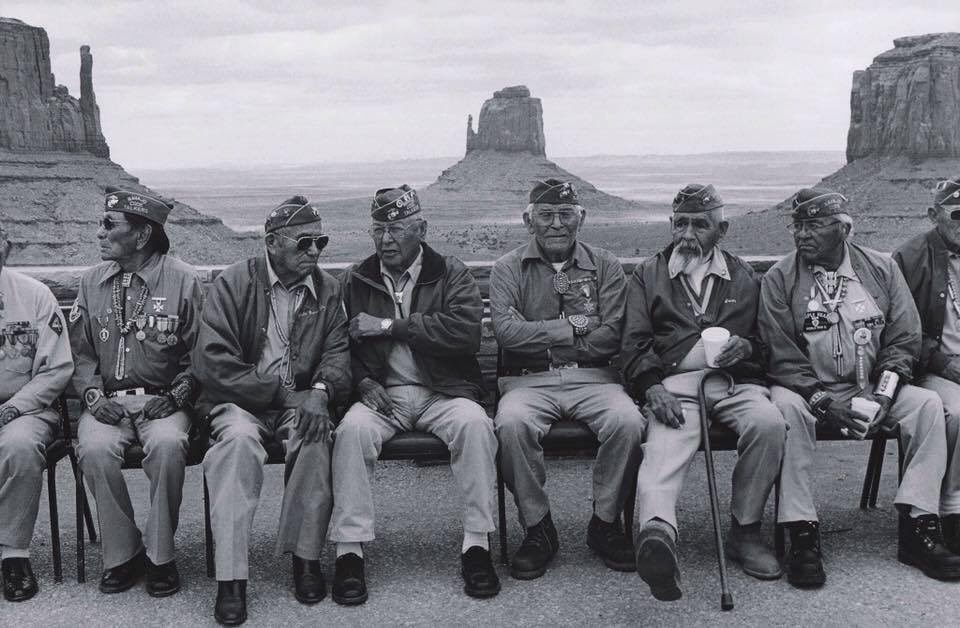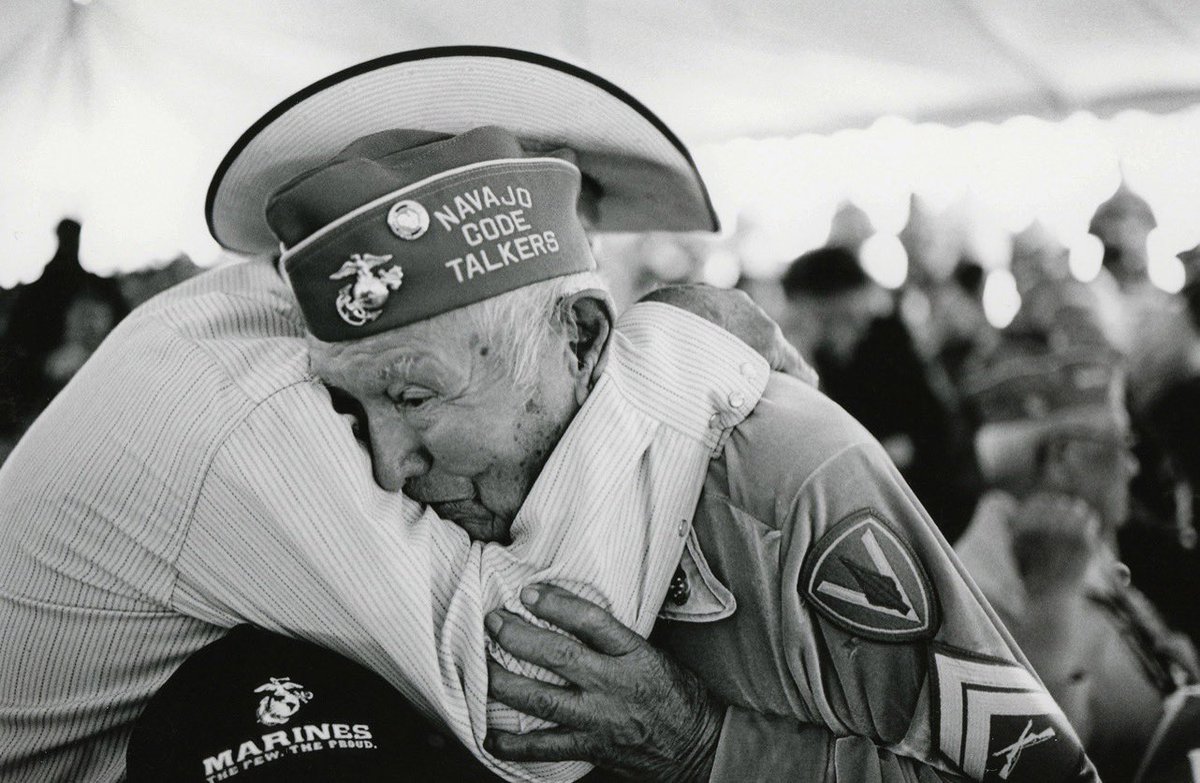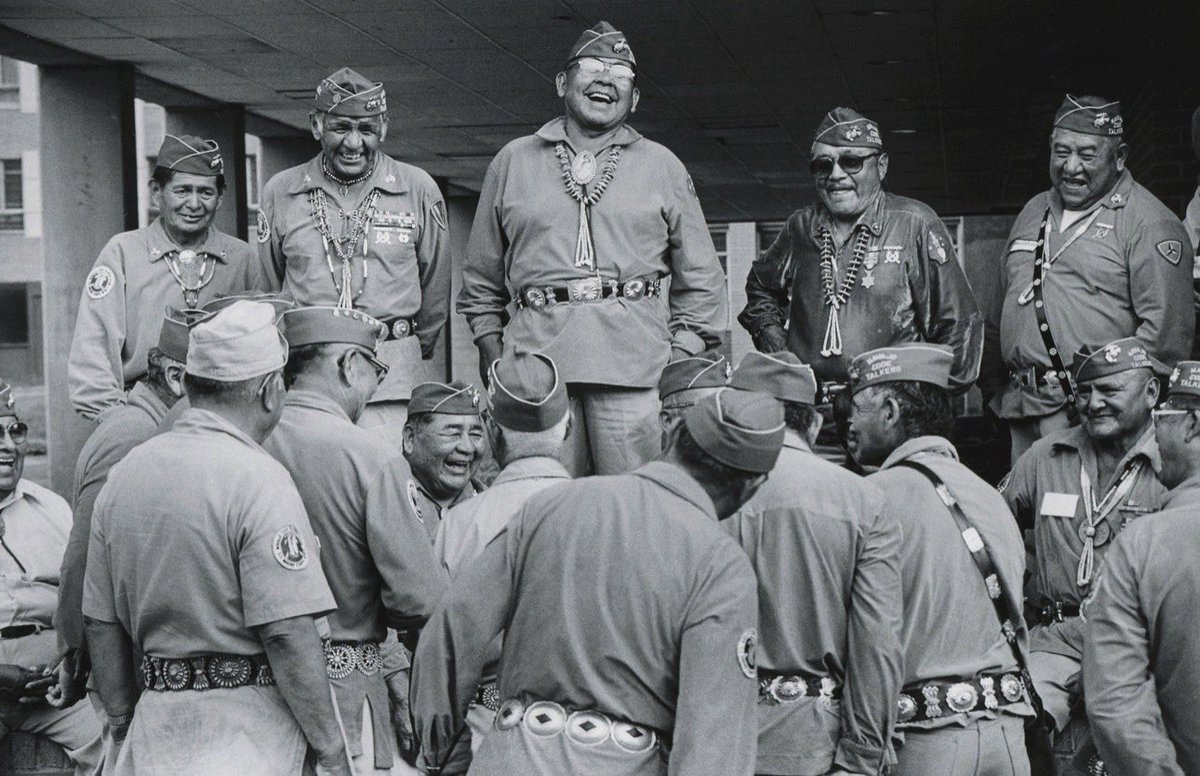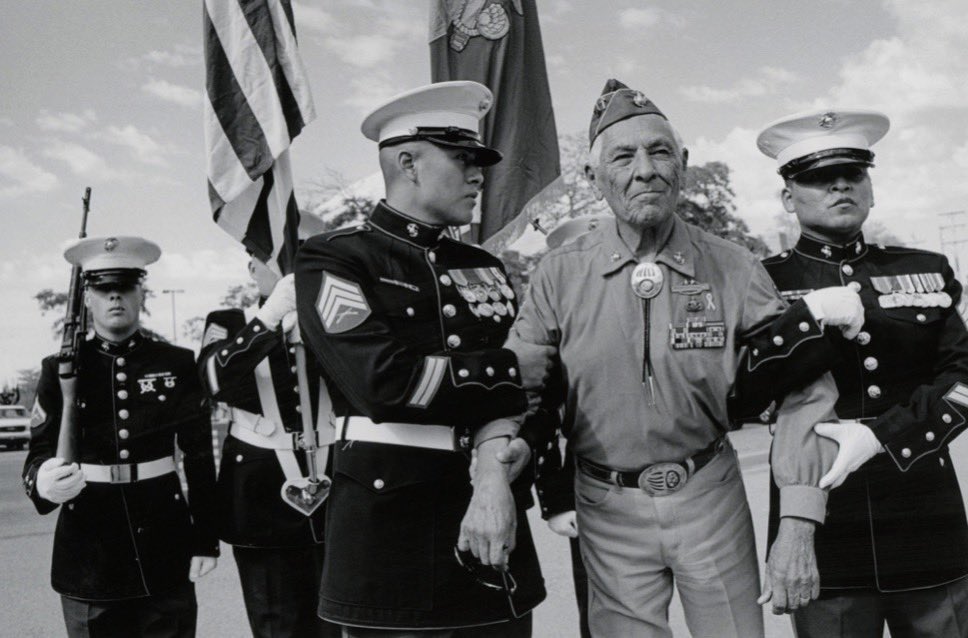
During the time of World War II, Navajo was virtually unknown outside the reservation. And the code proved uncrackable.
Kenji Kawano's striking photographs capture the quiet dignity of the Navajo Code Talkers as they recall their heroic actions. #VeteransDay
Kenji Kawano's striking photographs capture the quiet dignity of the Navajo Code Talkers as they recall their heroic actions. #VeteransDay

"When I was going to boarding school, the U.S. government told us not to speak Navajo, but during the war, they wanted us to speak it!"
Pictured in 2014: George James Sr, Window Rock, AZ.
#NativeAmericanHeritageMonth #WeAreStillHere @USMC
Pictured in 2014: George James Sr, Window Rock, AZ.
#NativeAmericanHeritageMonth #WeAreStillHere @USMC

Around 400 young Navajo men, who had never been away from the reservation, served in the South Pacific and are credited with helping win the battle of Iwo Jima.
Pictured: Code Talkers in Washington, D.C. – 1983.
Pictured: Code Talkers in Washington, D.C. – 1983.

In a remarkable historical irony, the photographer, Kenji Kawano, a Japanese immigrant married to a Navajo nurse – has dedicated his life since the 1970s to documenting the Code Talkers’ story & their post-war lives with thousands of photographs.
Pictured in 2013: Roy Hawthorne.
Pictured in 2013: Roy Hawthorne.

• • •
Missing some Tweet in this thread? You can try to
force a refresh


